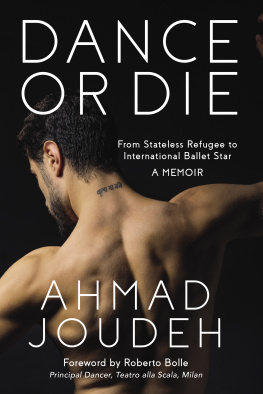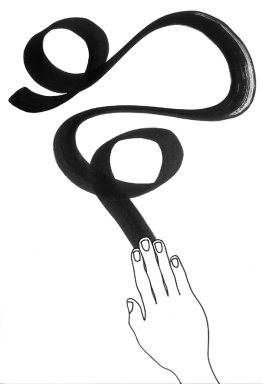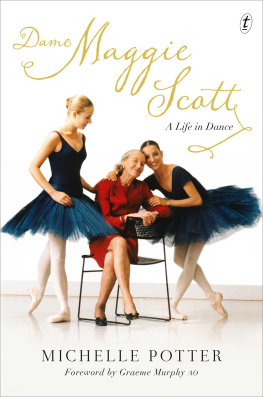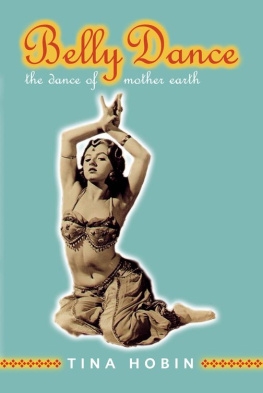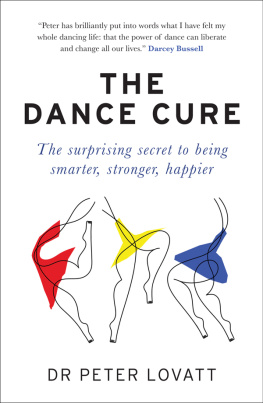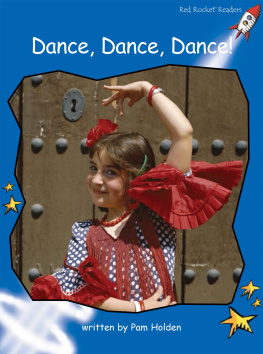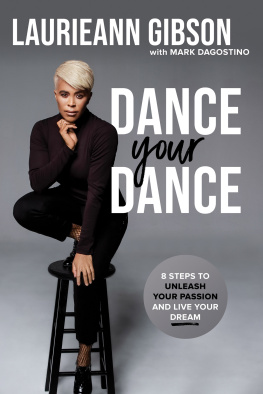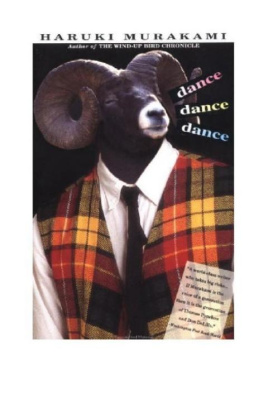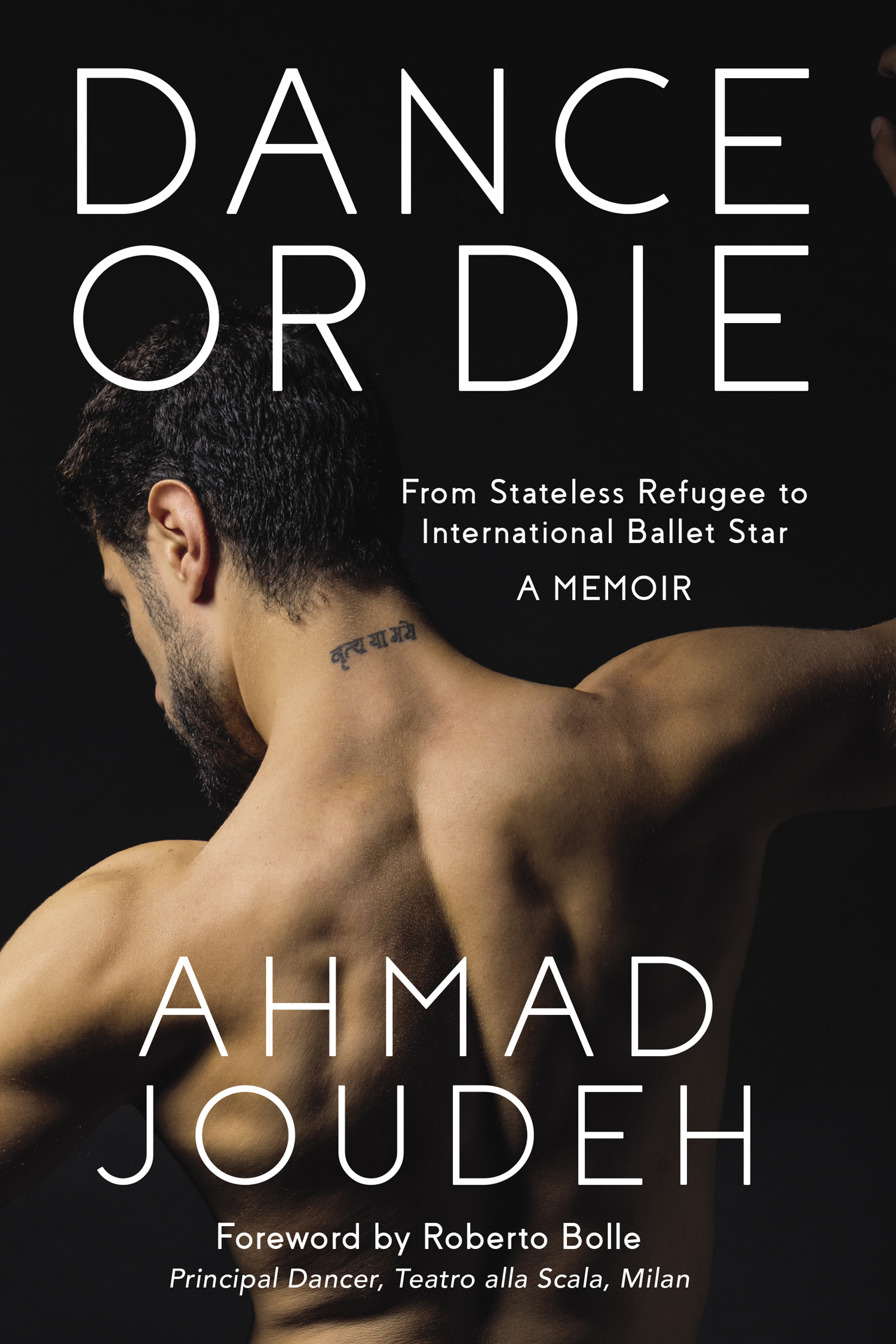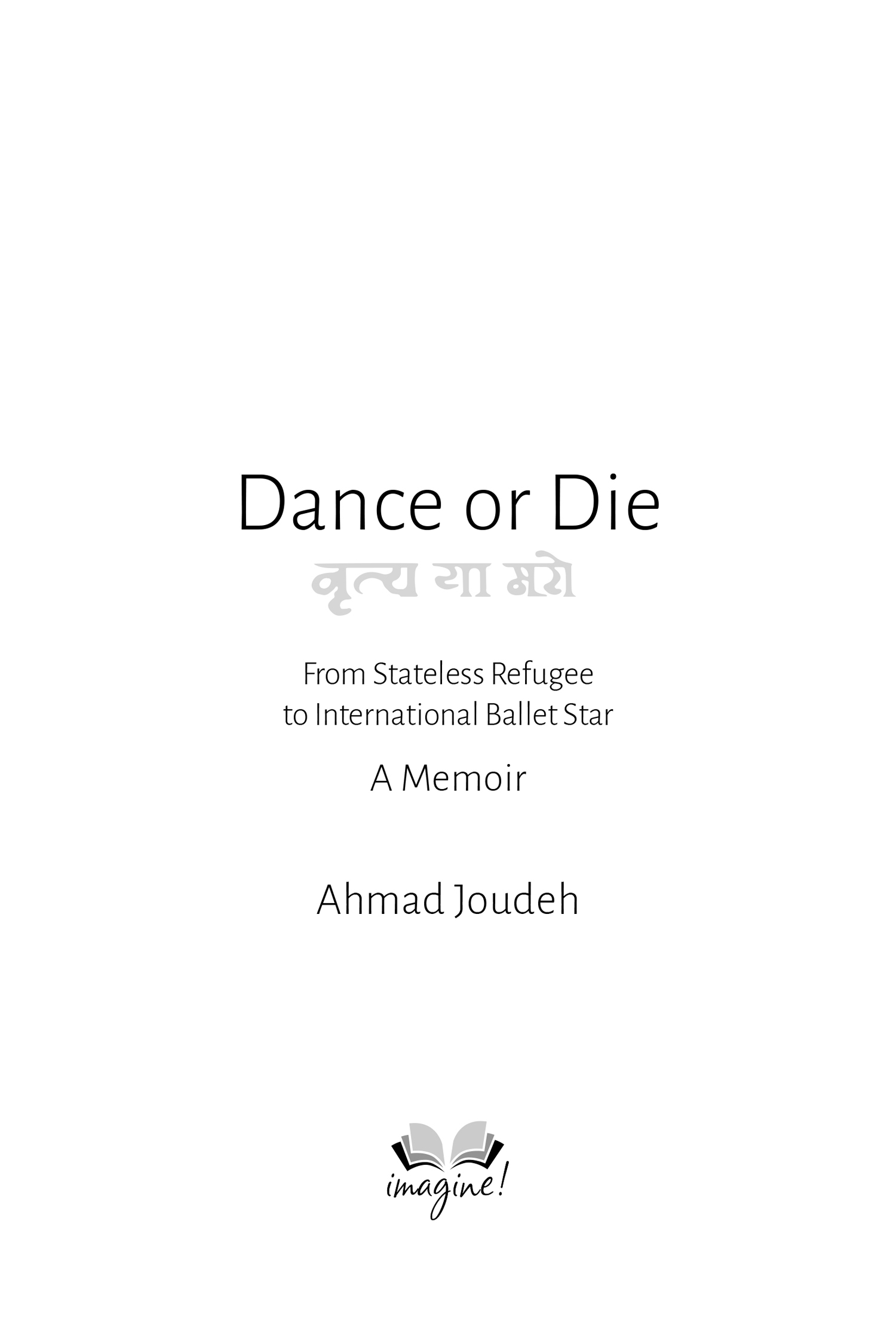All rights reserved, including the right of reproduction in whole or in part in any form. Charlesbridge and colophon are registered trademarks of Charlesbridge Publishing, Inc.
At the time of publication, all URLs printed in this book were accurate and active. Charlesbridge and the author are not responsible for the content or accessibility of any website.
Cataloging-in-Publication Data available upon request.
F OREWORD
A HMAD J OUDEH S STORY is one that is worth knowing, worth recounting to everyone, because its a story that touches the heart and truly lets us understand the importance of having a dream, of believing in it solidly, and of fighting for it until that dream becomes a reality.
And its a story that involves me personally and moves me because in some way Im part of it too.
I met Ahmad for the first time in Amsterdam, in a rehearsal room at the Dutch National Ballet. Over the days leading up to our meeting, Id heard people talking about himeveryone told me I really had to meet this young man whod arrived from Syria; I had to hear what hed been through and how hed come here. When we were actually face-to-face, Ahmad was full of emotion as he told me his story and how, for him, dancing had come to represent life itself. He also confided to me that I had been a point of reference for him ever since; as a very young child, he had developed a passion for dancing that challenged the prejudices and hostility of his family and social environment. I remained a point of reference in the following years, when he continued to dance despite the outbreak of war and continued to teach dance to children traumatized by the bombs and the violence. These are experiences so difficult and tragic that its not easy for us even to imagine them.
And yet, even in such an inhuman situation, dance proved to be a redeeming force because art really does have the power to elevate the soul, taking it away from the ugliness and the suffering, and can help us find once more our purest and brightest dimension, the best part of us and of all humanity. Its dance in our case, but it could have been music, poetry, dramaany form of art truly can lead us back into contact with our most authentic essence, with the Absolute.
If this is always true, everywhere, then arts extraordinary power emerges even more clearly in a dramatic story like Ahmads: its power to provide a positive and completely unexpected turn to existence, even where all hope seems to have been lost. But this can also happen for us, in our society. I think that Ahmad is an example for many young people who all too often are unwilling to fight for their own passions or have difficulty realizing just how many sacrifices; how much dedication, commitment, and determination are necessary for fulfilling our own dreams. Seeking out ones own passion, cultivating it, giving value to it, being ready to face up to the inevitable obstacles in moving forward with itall this, too, is a lesson that each of us can learn from reading Ahmads story.
In the end, this story is also emblematic of the drama lived by millions of migrants who are forced to flee from war and violence. Telling this story and letting people know about it allow us to put a human face on the harsh statistics the media transmit to us. The plight of migrants is one that must not be ignored or hiddenit must be known and understood. Especially at this moment in history, it is important to remind ourselves how each of us has a story and carries experiences from which we all can learn.
This is precisely why, in preparing the pas de deux with Ahmad that was broadcast on the Rai Uno television channel in Italy on January 1, 2018, I sought to involve Sting, an extraordinary musician who for some time now, and with great sensibility, has worked for this cause. I wrote to Sting personally to tell him about Ahmad, and even though he was touring at the time, he immediately accepted the job of accompanying us with two of his most unforgettable songs, Fragile and Inshallah.
Sting arranged things so that he arrived in the afternoon, recorded with us, and then left that evening. We had rehearsed very little, but we were determined to give Ahmad the chance of fulfilling another dream and of spreading a message of universal hope. That day, we turned the spotlight on one young person, but there are many like himeach with his or her own experiences, his or her own passions, precisely like Ahmad and like us.
When we finally danced together on television, Ahmad surprised me once more, leaving me amazed at his abilities as he dealt with such a grand and novel situation, a situation he wasnt used to. Once again, he proved he was more than good enough, and his performance went beyond all our expectations. He was professional, self-confident, and in control of his emotions. He was at ease in the element he is made fordancing. He was in the midst of the impossible dream that he had now transformed into reality.
Roberto Bolle
O NE
I N 1948, A ISHA M AWAID was eight years old and living in Saffuriya, near al-Nasrah, in Palestine. She didnt understand why she suddenly had to leave. She was just told that a war had started. But what is war? she wanted to know. Her family promised her that they would all return home in a few days time. There was no need to fret too much. For the moment, however, the only solution was escape.
She took nothing with her; none of her relatives took anything. They left their small family farm and all it contained: a horse, a donkey, the many tools that had been made and accumulated over the years, tools used to work the land that had always fed them. They abandoned the olive trees, the vines, the figs. They didnt even take their gold and their valuables, convinced that theyd find it all intact on their return. They took only some old blankets to keep themselves warm during the cold nights. Before leaving, Aisha took off her favorite earrings. Shed seen the soldiers rip them from the ears of girls of her age. It wasnt the right moment to think too much about what might happen, but the memory of blood and violence and the cries of pain was enough for her to intuit what she had to do to survive.
That same year, the year of the Palestinian exodus during the first Arab-Israeli War, a twelve-year-old boy named Ahmad Joudeh also followed his familys choice of escape. He lived in Lubia, ten kilometers west of Lake Tiberias in the north of Palestine. Following the Israeli victory, he fled to Lebanon. In the chaos he lost his family, but he found them again by pure chance in a refugee camp, and from there they moved together to Syria, settling eventually with other Palestinians on the southern outskirts of Damascus.

